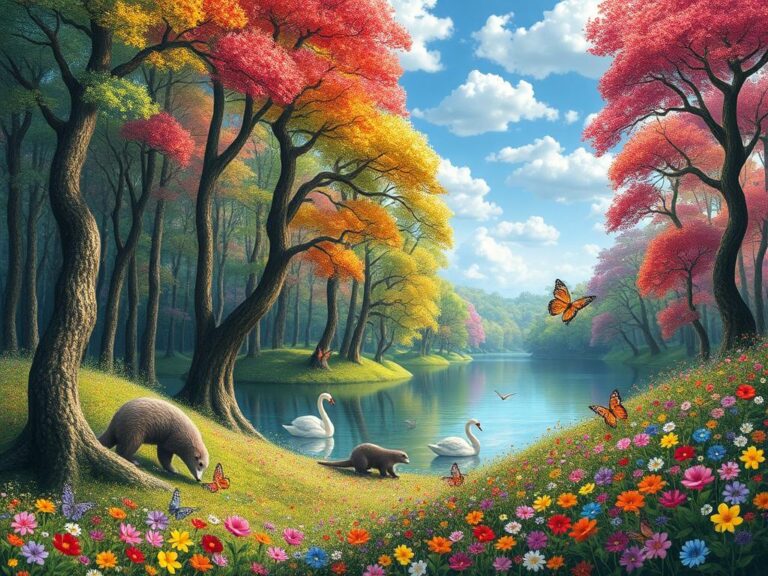100 Very Hard Quiz Questions to Challenge Your Knowledge
100 Very Hard Quiz Questions to Challenge Your Knowledge
Quiz questions serve as a valuable tool for testing and expanding our general knowledge.
If you’re in search of intricate quiz questions that can perplex even the most astute minds, you’ve come to the right place.
This article dives deep into 100 very hard quiz questions that will challenge your intellect and encourage learning in an entertaining way.
From questions about history to science, geography, and literature, each question is designed to spark curiosity and promote further inquiry, ensuring a well-rounded understanding of various subjects.
Whether you’re preparing for trivia night, testing your knowledge with friends, or simply wish to challenge yourself, these quiz questions will provide hours of engaging fun.
1. The Only Country That Is Also a Continent
What is the only country that is also a continent?
The answer is Australia. It stands out as both a country and a continent, making it unique in various ways.
This fact often surprises many; particularly those who may not venture into geographical studies.
This question is a perfect icebreaker for educational quizzes or representing Australian culture in trivia games.
2. The Epic Poet Behind “Paradise Lost”
Who wrote the epic poem “Paradise Lost”?
John Milton penned this remarkable work that grapples with the theme of mankind’s fall from grace.
Understanding Milton’s influence on literature can enhance one’s appreciation for various literary themes.
This knowledge not only highlights the author’s talent but also draws attention to the significant cultural footprint left by the poem in English literature.
3. The Square Root of 144
What is the square root of 144?
The answer is 12. This might be a simple math question for some, yet it has a deep connection to various mathematics branches.
Identifying square roots is crucial for understanding equations in algebra and can be beneficial for students preparing for standardized tests.
4. The Year the Titanic Sank
In what year did the Titanic sink?
The tragic accident occurred in 1912. The story of the Titanic remains a significant event in maritime history and serves as a reminder about humanity’s quest for innovation and the consequences tied to it.
As a quiz question, it piques interest not only regarding history but also concerning societal progress and tragedy.
5. Elements in the Periodic Table
How many elements are in the periodic table?
As of the latest updates, there are 118 known elements.
This question serves as a fantastic conversation starter in the fields of science and education.
Understanding the periodic table is fundamental for students studying chemistry and can foster deep discussions about the elements’ properties and interactions.
6. The Hardest Natural Substance on Earth
What is the hardest natural substance on Earth?
The answer is diamond. This intriguing fact shines light on the field of geology and mineral studies.
Knowing about diamonds and their hardness paves the way for understanding gemstones’ properties, their uses, and their value within economic contexts.
7. The Painter of the “Mona Lisa”
Who painted the “Mona Lisa”?
Leonardo da Vinci is credited for this masterpiece, which fascinates art lovers and historians alike.
This question can spark discussions about Renaissance art, the significance of pieces in cultural history, and the secrets surrounding “Mona Lisa” herself.
8. The Red Planet
Which planet is known as the Red Planet?
Mars bears this title due to its reddish appearance from iron oxide on its surface.
Knowledge about Mars and its features can lead to exciting conversations about space exploration and our expanding understanding of the cosmos.
9. Chemical Symbol for Gold
What is the chemical symbol for gold?
The answer is Au. Trivia surrounding chemical symbols and their origins can broaden perspectives on both chemistry and historical elements.
This knowledge plays into academic circles, promoting understanding regarding chemical reactions and bonding.
10. Location of the Cerebellum in Humans
In which organ of the human body would you find the cerebellum?
The cerebellum is located in the brain. This question allows for deeper conversations regarding human anatomy and the body’s complex systems.
Understanding the functions tied to various brain parts offers insight into neurological studies and human health.
Additional Challenging Quiz Questions
Beyond the first ten questions, there are innumerable profound inquiries waiting to be discovered.
We continue with the quiz, showcasing questions that touch upon history, science, geography, and arts.
11. Who Discovered Penicillin?
Alexander Fleming made this monumental discovery.
Understanding the story of penicillin can lead to exciting discussions regarding modern medicine’s evolution.
12. Capital City of Mongolia
What is the capital city of Mongolia?
The answer is Ulaanbaatar.
This inquiry opens avenues for exploring unique cultures and geographical features found in Mongolia.
13. Longest River in the World
What is the longest river in the world?
The Nile River and the Amazon compete for this title, depending on measurements and definitions used.
This debate on river lengths captivates geography enthusiasts while encouraging discussions about environmental issues facing these waterways today.
14. First Woman to Fly Solo Across the Atlantic Ocean
Who was the first woman to fly solo across the Atlantic Ocean?
Amy Johnson achieved this remarkable feat.
This question highlights the importance of women in aviation and their impact on history.
15. Photosynthesis in Plants
Which part of the plant conducts photosynthesis?
The leaves are primarily responsible for this vital process.
This information can spark engaging conversations around botany and environmental science.
16. The “Maid of Orléans”
Who was known as the “Maid of Orléans”?
Joan of Arc was a significant historical figure who played a crucial role in France’s national identity.
This question serves as an important reminder of history’s storytellers and courageous individuals.
17. The Smallest Prime Number
What is the smallest prime number?
The answer is 2.
This fact can be fundamental for diving into number theory and mathematical principles more broadly.
18. Year the Berlin Wall Fell
In which year did the Berlin Wall fall?
It occurred in 1989.
This event remains significant in discussions about freedom, identity, and the political landscape of the modern world.
19. First Person to Circumnavigate the Globe
Who was the first person to circumnavigate the globe?
Ferdinand Magellan was credited with this monumental voyage.
This fact offers insight into exploration’s history and human perseverance in the face of challenges.
20. Main Ingredient in Traditional Hummus
What is the main ingredient in traditional hummus?
The answer is chickpeas.
This inquiry can lead to delightful discussions about Middle Eastern cuisine and cultural diversity through food.
Further Questions to Enhance Knowledge
Continuing to enriching knowledge with an array of quiz questions contributes to collective learning experiences.
For those interested in more quizzes, consider using these additional questions:
21. Most Abundant Gas in Earth’s Atmosphere
Which gas is most abundant in the Earth’s atmosphere?
The answer is nitrogen, accounting for approximately 78% of the atmosphere.
22. RAM in Computer Science
In computer science, what does “RAM” stand for?
It stands for Random Access Memory, crucial for the operation of computers.
23. Ancient Civilization that Built Pyramids
Which ancient civilization built the pyramids?
The Egyptians constructed these marvels, showcasing their architectural prowess.
24. Musical Instrument with Keys, Pedals, and Strings
What musical instrument has keys, pedals, and strings?
The piano fits this description perfectly.
25. Year of the First Manned Moon Landing
In what year was the first manned moon landing?
The historic event took place in 1969.
26. Capital of Australia
What is the capital of Australia?
The answer is Canberra.
27. Author of the Play “Hamlet”
Who wrote the play “Hamlet”?
William Shakespeare is the playwright behind this timeless work.
28. Currency Used in Japan
What is the currency used in Japan?
The answer is yen.
29. Laws of Motion and Universal Gravitation
Who formulated the laws of motion and universal gravitation?
Isaac Newton is credited for these laws, changing the course of physics.
30. Element Represented by ‘O’ on the Periodic Table
What element does ‘O’ represent on the periodic table?
The answer is oxygen.
Conclusion
These 100 very hard quiz questions are designed to stimulate your intellectual curiosity and challenge your knowledge across various subjects.
From geography to science, history to literature, each question serves as an opportunity to engage both mind and spirit.
So gather your friends, set up a quiz night, or just try to answer these questions on your own.
Good luck, and happy quizzing!
FAQ
What makes a quiz question challenging?
A quiz question is considered challenging based on its complexity, ambiguity, or the specificity of knowledge required.
More commonly known facts may lead to easier questions, while those that are obscure or delve into deeper understanding can be more difficult.
How can I prepare for a quiz?
To prepare for a quiz, reviewing relevant topics, engaging in group discussions, and utilizing study aids such as flashcards are beneficial strategies.
Can quiz questions be used for learning purposes?
Absolutely! Quiz questions serve not just as testing tools but also as effective learning methods, encouraging exploration and deeper understanding of diverse subjects.
Inviting friends or peers to join and challenge one another can also enhance collective knowledge while providing a fun environment.







